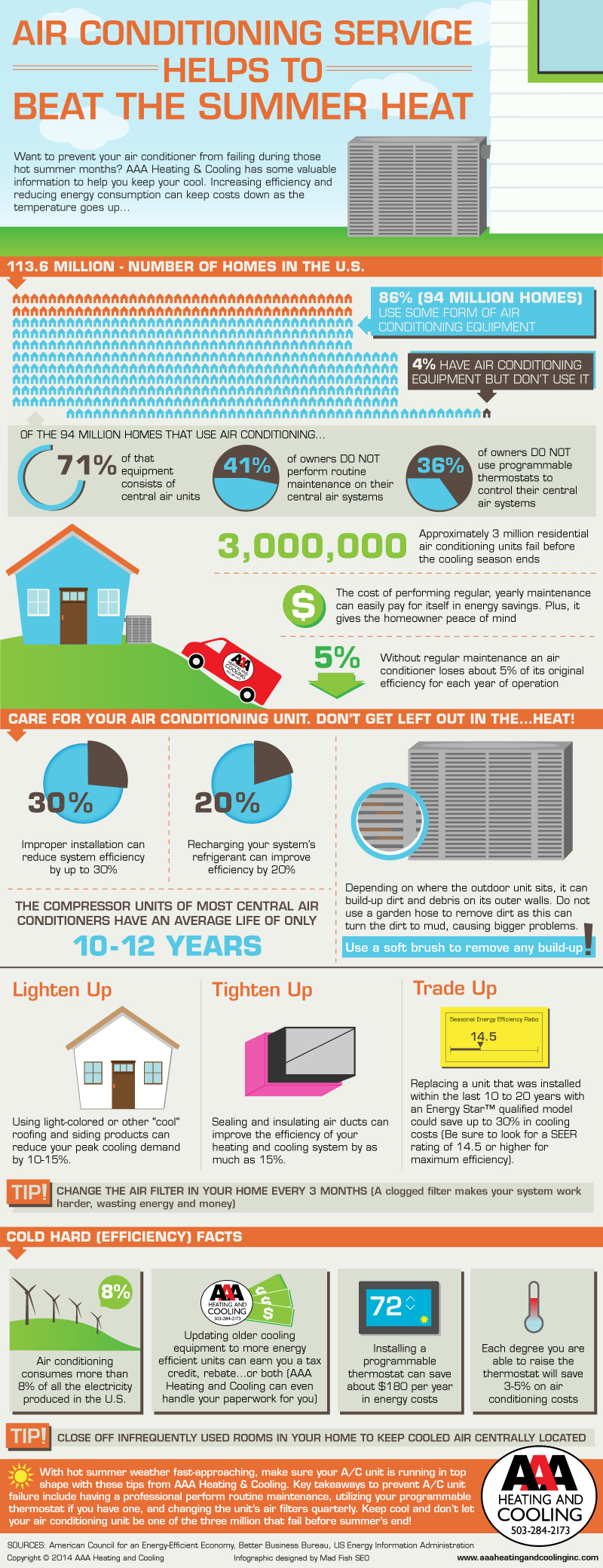Exploring The Ecological Advantages Of Warm Pumps - A Sustainable Heating Option
Exploring The Ecological Advantages Of Warm Pumps - A Sustainable Heating Option
Blog Article
Read the Full Write-up By-Forsyth Zhou
In an era where sustainability and power performance are critical, numerous businesses look for environmentally friendly home heating solutions. One such service is the heatpump.
A heatpump draws out the warm in its environments and pumps it right into your home, leading to among one of the most effective environmentally friendly main furnace around. This procedure likewise generates absolutely no greenhouse gas emissions, making it a highly sustainable technology.
Energy Efficiency
Heat pumps are really energy efficient and call for little maintenance. They make use of much less electrical energy than various other heating systems and are by far one of the most eco-friendly. They function well with roof solar and can often spend for themselves in energy cost savings alone.
They can likewise provide cooling, which is excellent for garage workshops, attic room hangouts and bonus rooms, and home enhancements without prolonging the existing ductwork. They can even be utilized for retrofits in existing homes with hydronic (water-based) circulation systems such as reduced temperature level radiators or radiant floorings.
Seek versions with SEER and HSPF ratings that fulfill or surpass Canada's minimum standards, as well as the requirements in your region. Greater rankings mean better effectiveness, which saves you cash over time and reduces your carbon footprint. You could also receive refunds and motivations! The most effective units are those with a ground warm exchanger for added effectiveness. These systems can soak up thermal energy from the ground during the winter and essence it in the summer.
Reduced Greenhouse Gas Emissions
Heatpump operate on power and essentially move warm from the air, even when it's chilly outside. They are able to extract the cost-free warm caught in air bits and relocate them inside your home, minimizing humidity while doing so.
Contrasted to gas furnaces, modern heatpump use less than one kilowatt of electrical power per kilowatt of heating power they create. This makes them the most power efficient heating option available with a COP (Coefficient of Efficiency) of four or even more. By reducing cost of heat pump installation nz for nonrenewable fuel sources, heatpump help in reducing greenhouse gas exhausts and reduce other major air toxins.
Building decarbonization is an international crucial, and the a/c field is an essential vehicle driver of that process. Whether it's real estate investors making internet zero dedications, policy manufacturers setting emissions restrictions, or tenants demanding greener areas, electric heatpump are being recognized as an essential remedy. They are a cost-effective method to minimize carbon emissions by getting rid of the demand for nonrenewable fuel sources in structures.
Versatility
Heatpump can be used in numerous kinds of homes and structures-- with or without air ducts. air conditioning installers near me deal with hot-water radiators, air-conditioning and programmable thermostats. They can change heaters or be set up in new houses. They can run on photovoltaic panels, geothermal systems or even area home heating resources like wastewater.
They're excellent at delivering more heat per power unit. For instance, an air-source heatpump generates approximately three or more home heating systems from each electrical energy unit it consumes.
Getting one of the most from your heat pump will depend upon your climate zone and quality of insulation. Try to find designs with power STAR scores and contrast their SEER or HSPF specs. In warmer environments, focus on SEER; in cooler areas, think about a system with a greater HSPF rating. In addition, purchase air sealing and insulation to minimize the tons on your heatpump. That will enhance power effectiveness and aid you reach your Net Absolutely no goals much faster.
Biomass Boilers
Biomass central heating boilers use wood pellets, chips or logs to develop warmth and hot water. They are an excellent selection for off-grid properties or those who intend to leave the gas grid.
As a standalone heater, biomass can offer adequate power to maintain your home warm all the time without the regular warm drop off of various other renewable modern technologies. They can additionally be utilized in conjunction with photovoltaic panels to maximise savings and gain from RHI settlements.
A downside of these systems is the ahead of time cost and routine fuel shipments. Usually, pellets will need to be blown into a fuel shop utilizing a vacuum cleaner system or they can be by hand fed right into the boiler via a receptacle. Logs are usually self-sourced from nearby forest or acquired wholesale. As well as this, they need hands-on loading and might need cleaning on a regular basis.